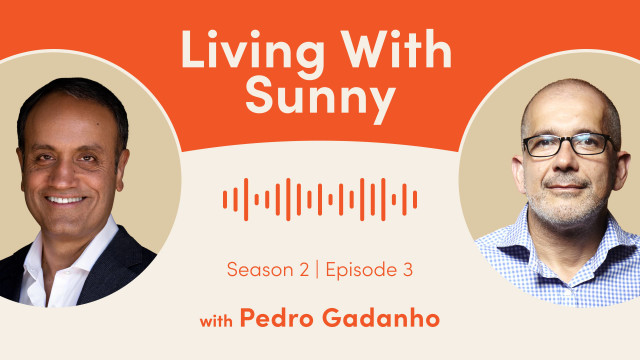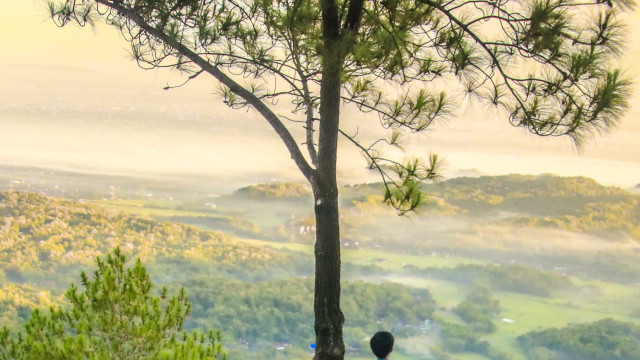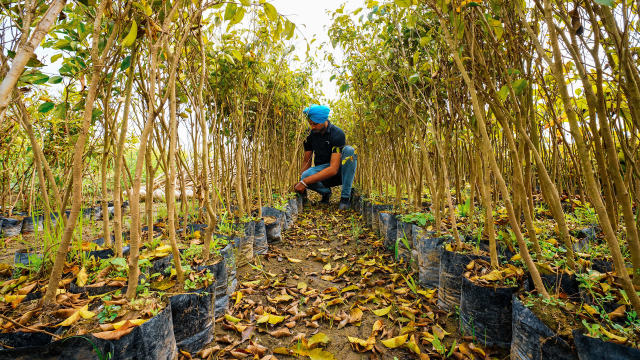Convert Climate Concern Into Action

The writing has been on the wall for quite some time as far as climate change is concerned. The past decade was the hottest ever: In 2021, the global average temperature was about 1° Celsius higher than the average in the pre-industrial period.
We are feeling the heat, quite literally — from withering droughts and unrestrained wildfires to devastating floods, tsunamis, earthquakes, and other extreme climate events. And the spread is far and wide; there’s barely any part of the world that’s been spared the onslaught of such catastrophes. Nor are any of its people — these events impact millions of people and myriad habitats worldwide.
But we have hope yet, the latest IPCC report noted that in 2010-2019, the average annual global greenhouse gas emissions were at their highest levels ever, but the rate of growth has slowed. If we want to save the world — and ourselves — we must act now.
The window for limiting global warming to relatively safe levels is rapidly closing, said the IPCC. “It’s now or never, if we want to limit global warming to 1.5°C (2.7°F); without immediate and deep emissions reductions across all sectors, it will be impossible,” said Jim Skea, Co-Chair of the IPCC Working Group III, which released the latest report.
That’s a tall order, but each one of us can contribute. This World Environment Day, June 5, as the UN rolls out the #OnlyOneEarth campaign calling for “collective, transformative action on a global scale to celebrate, protect and restore our planet,” let’s take a pledge to do our bit to reduce greenhouse emissions and help address climate change. We must — for the sake of our planet and our own wellbeing, and the future of our children. After all, we are nothing without our planet.
Watch your carbon footprint
It all starts with your carbon footprint. From where you source and how manage your energy (solar and electric energy are the best); the type of car you drive (the world is moving toward electric or hybrid vehicles); how, where, and how often you travel (limit work-related travel by using teleconferencing whenever possible; take public transport and respect local communities and their way of life wherever you go). Even what you eat (I stick to a plant-based diet and whole foods sourced from local markets), and the decisions you make while shopping for food and household items (I balance fair trade with good health and budget). These are all part of my effort to reduce my personal carbon footprint. If you and I manage even one aspect of these actions with intelligence and sensitivity toward Mother Earth, we can help combat climate change and send a message to all concerned.
If you think this is tough, I’ve got a story for you
I recently met a middle-class family in the US that has dedicated part of their annual budget to make small improvements to their suburban home. In the first year of their commitment to helping the planet, they added solar panels on their roof, saving thousands of dollars in heating bills and defraying their energy provider’s costs. The second year, they upgraded their home’s plumbing, bringing in a brown water recycling system to keep their garden green and grow healthy vegetables; they also started reusing household water for doing the dishes and laundry. This lowered their water bill and conserved water for their community, which was susceptible to drought. In the third year, they traded their prized gas stove for a modern, energy-saving electric one. They were very vocal about their initiatives and became local influencers for their community along the way.
If one family can do it, so can others, at the individual and organizational level as well. At Roundglass Foundation and Roundglass Sustain, our teams lead various projects in my home state, Punjab, in India, raising awareness about social and environmental issues in the region and promoting Wholistic Wellbeing-based approaches to solve them. Our changemakers at the Roundglass Foundation act as mentors for the next generation, spreading awareness and involving local communities in implementing meaningful projects on waste management, reforestation, etc.
Advocacy — that’s the next step.
As members of a community, we can learn a lot from each other and create an impact in our city, town, or village. Affiliating ourselves with a climate organization and making our concerns known to elected officials is a great way to begin our journey towards planetary wellbeing. When we discuss our concerns with the community and act upon it, our voice has a real effect. This includes being vocal on social media where our words have the ability to become actionable by paving the way for new conversations and inspiring people to take baby steps towards creating a more sustainable world. We may not be able to convince everyone in the room, but we can certainly sway some to our perspective.
Let’s also not forget that those who are unprivileged are by far the most affected by climate change, and often in no position make changes on the same level as the middle class and above. Those of us who have the resources and privilege to alleviate the strain of climate change on our fellow humans should do so through charitable donations, outreach initiatives, and educational services.
Every step counts. Whether its switching to steel straws or running your household on solar energy — no initiative is too small when it comes to saving the planet.





